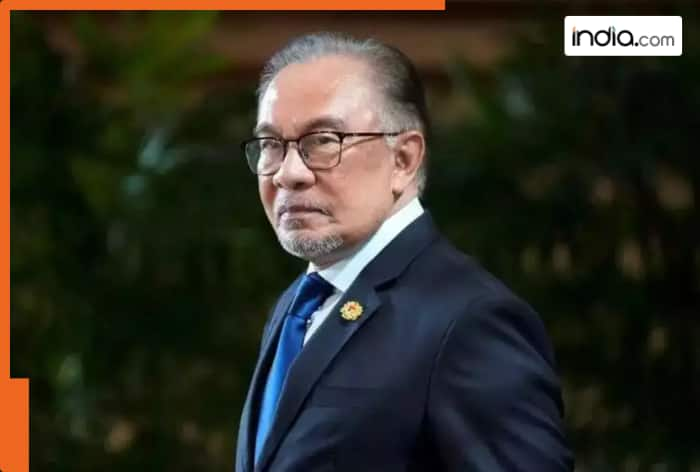In particular, both Saudi Arabia and Turkey leaders continue to demonstrate the power to establish hegemony in Islamic countries.

Amid the ongoing cold war between Saudi Arabia and Turkey, Malaysian Prime Minister Anwar Ibrahim issued a statement that intensified tensions in Islamic countries. He fueled the fire by calling the Turkish president “the leader of Islamic countries.” In particular, both Saudi Arabia and Turkey leaders continue to assert their power to establish their superiority in the Islamic world. During the programme held in Jakarta, Ibrahim praised the Turkish president and thanked him for supporting his country during difficult times.
According to the Malaysian Prime Minister, Turkish President Erdogan stood by his side even during the most difficult times when everyone left him alone. In a programme organized in Jakarta, Prime Minister Ibrahim addressed Turkish President Erdogan as “the leader of Islamic countries.”
It is important to note that this race is continuing to be a leader in Islamic countries. Even Pakistan’s former prime minister, Imran Khan, also tried to make Erdogan a modern-day caliph. However, Prince Salman had restrained his intentions.
Saudi Arabia was so furious at Imran Khan’s move that it stopped aid to Pakistan. Following tension, Khan tried to normalize them. A few months later, Saudi Crown Prince Mohammad bin Salman forgives him.
Therefore, the Malaysian Prime Minister’s statement could also affect relations between Malaysia and Saudi Arabia.
Who is the leader of Islamic countries?
There was a race between Saudi Arabia, Turkey and Iran to establish themselves as the leading nation of the Islamic world. This rivalry led to tension between the three countries. These countries leverage their historical, economic and political resources to increase their influence.
Furthermore, countries interpret Islam in their own way that guides their foreign policy. Over the past decade, many Islamic countries have sought to challenge Saudi Arabia’s position as leaders of the Islamic community, as demonstrated by the actions of the Islamic Khan. During the Kuala Lumpur Summit in Malaysia in 2019, Turkey and Iran were hoping to establish themselves as alternative leaders for Saudi Arabia.
Want the glory of the Turkish President of the Ottoman Empire
Turkish President Recept Tayyip Erdogan wants to regain the glory of the Ottoman Empire. However, Saudi Arabia is on a more powerful side as it has Mecca and Medina in its country.
Therefore, Saudi Arabia and Turkey have always been against each other. This is why President Erdogan denounced Prince Salman in 2018 when Saudi journalist Jamal Khashoggi was murdered at the Saudi Arabian Embassy in Turkey. Turkey conducted an investigation and claimed that the murder was committed at the request of the Saudi Arabian Crown Prince.
Whatever the reality behind the murder, the purpose behind the rigorous investigation was to destroy the image of Prince Salman.
After this, the situation worsened to the point that boycotting Turkish goods began in Saudi Arabia.
The fight for hegemony for domination among Islamic countries was a 2017 event in which Qatar tried to strengthen relations with Iran, imposing economic sanctions to lead Saudi Arabia, the United Arab Emirates and Bahrain. Examples are shown. Countries such as Türkiye, Saudi Arabia and Iran have adopted soft power strategies to assert leadership within the Islamic world. Saudi Arabia provides financial support to poor Islamic countries, while Turkey offers weapons on favorable terms, including an agreement to manufacture Bayraktar TB-3 drones in Malaysia. Meanwhile, Iran is engaged in the fight against Islamic fundamentalists. As a result, the designation of Turkish president as Malaysian Prime Minister as a leader of Islamic countries could cause a potentially tense relationship with relations between Saudi Arabia and Malaysia for a period of time.


